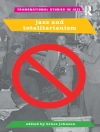This book offers a comprehensive overview of electronic dance music (EDM) and club culture. To do so, it interlinks a broad range of disciplines, revealing their (at times vastly) differing standpoints on the same subject. Scholars from such diverse fields as cultural studies, economics, linguistics, media studies, musicology, philosophy, and sociology share their perspectives. In addition, the book features articles by practitioners who have been active on the EDM scene for many years and discuss issues like gender and diversity problems in general, and the effects of gentrification on club culture in Berlin.
Although the book’s main focus is on Berlin, one of the key centers of EDM and club culture, its findings can also be applied to other hotspots. Though primarily intended for researchers and students, the book will benefit all readers interested in obtaining an interdisciplinary overview of research on electronic dance music.
Innehållsförteckning
Introduction.- Part I.- Electronic Dance Music and Club Culture in Berlin.- Dimensions of Club Culture – Learning from Berlin.- Only the Echo is Left (Alive).- The Berlin Techno Myth and Issues of Diversity About the connections between techno, the muting of diverse perspectives,
inequalities and the persisting need for platforms like female:pressure.- Club Culture and Electronic Dance Music in Berlin: An Economical, Social and Aesthetical Perspective.- Researching Informal Musical Expertise and Mediations of Aesthetic Experiences among the Berlin Techno Audience.- Part II.- Musicians and Musickers.- The Influence of Berlin on Austrian and Polish Electronic Musickers.- “100% Expert!” Mastery and Equality in Darsha Hewitt’s Sideman 5000 Adventure.- Part III.- Electronic Musical Instruments and Their Users.- Sound Visions and Visible Sounds. Electronic Musical Instruments and Their Power to Change.- The Discourse Community of Electronic Dance Music Through the Example of the TB-303 Owners Club.- The Human Modular Synthesizer – The Musical Design and Live Performance of Elektro Guzzi’s Pentagonia.
Om författaren
Anita Jóri is a research associate at the Vilém Flusser Archive, Berlin University of the Arts (Universität der Künste Berlin, Ud K). She studied applied linguistics and history, and finished her Ph D thesis on “The Discourse Community of Electronic Dance Music” at Eötvös Loránd University, Budapest, Hungary in 2017. Her research interests include electronic dance music cultures, gender and diversity issues in EDM scenes, and applied linguistic methodologies. Jóri is also a chairperson of the German Association for Music Business and Music Culture Research (GMM).
Martin Lücke is a Professor of Music Management at the Macromedia University for Applied Science in Berlin. Since 2018 he has also been Associate Dean of the Berlin campus. Lücke studied musicology, modern history, and political science at the Ruhr University of Bochum. He finished his studies with a doctoral thesis on jazz in totalitarian systems, which was published in German in 2004. His current research interests include popular music, the music industry, and educational research. Lücke was a co-founder and chairman (2016–2018) of the German Association for Music Business and Music Culture Research (GMM). Currently he is publishing the Lexikon der Musikberufe at Laaber Verlag.












